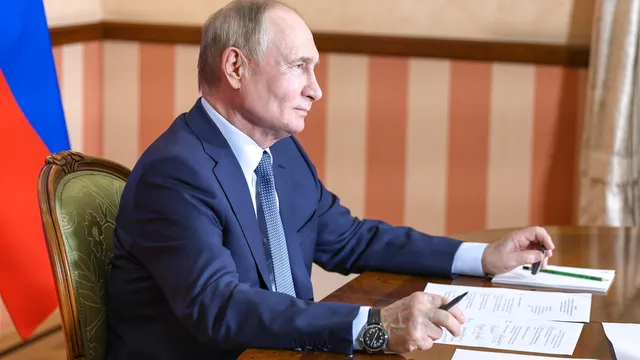Among all the statements heard over the past 48 hours, the statement made by the Chief of Staff of the Israeli Defense Forces, Eyal Zamir, at the beginning of the war stands out. “We have reached the point of no return; the decision to attack was professional and purposeful.”
In a reality where most of the country's citizens are convinced that the prime minister is acting out of political considerations that are irrelevant and often personal when it comes to national security and humanitarian issues (such as the fate of hostages); and given his legal position and the state of his coalition, as well as his overall behavior, the chief of staff obviously felt it necessary to justify the decision to attack Iran's nuclear facilities.
In no campaign or operation has an Israeli Chief of Staff ever stood before the public and reassured them that the decision to attack was not based on irrelevant or unacceptable considerations.
Netanyahu is aware of the public's suspicions and lack of trust in him. In his statement, he said that the decision to attack was made “on the recommendation of the IDF.” In other speeches he gave after the extent of the results achieved became clear, he praised the air force, military intelligence, Mossad, and the entire army. These are organizations that he, his wife, his son, his advisers, and his followers on social media and in some television studios had until recently criticized and turned the public against.
Netanyahu often referred to senior members of the Mossad and its chief as a “junta.” These claims also included Shin Bet and senior army officers. He said this knowing that at the same time, agents of the organization were in Iran preparing the infrastructure for an attack. He called the air force pilots “anarchists.” During the attempt at judicial reform, Communications Minister Shlomo Karhi told them to “go to hell,” and Transportation Minister Miri Regev demanded that they be thrown in jail and expelled from the IDF; these are the reservists now operating in Iran.
The IDF was accused by Yair and Sara Netanyahu of attempting a coup, with the tacit consent of the head of the family. My colleague Josh Breiner found several tweets by Caroline Glick, an advisor to the prime minister who is a fan and disseminator of crazy conspiracy theories. After October 7, she wrote: “We failed to convince the air force to protect the citizens of Israel. They are worried that they will have to cancel their shopping trips to London.”
In the middle of the week, when he already knew the day and hour of the attack and was aware that the citizens of Israel were about to go through days of trials they had never experienced before, he attacked his protesters, denigrating them and accusing them of collaborating with Hamas. He did the same in the Knesset two weeks ago — in a speech directed at more than half the nation that opposes him.
On June 13 and 14, he thanked “our wonderful nation” and praised its unity, as well as the fact that people had come together to face the challenges. A responsible leader, a reasonable man who knows what is about to happen, who knows that there will be casualties and injuries, that people will lose their homes and their lives will be disrupted for a long time, had a duty to calm the passions. He was unable to do so.
Two and a half years after forming his government, Netanyahu had the opportunity to start his disastrous term over again. First, he could present a comprehensive plan to end the war in Gaza in exchange for the return of all 53 hostages, dead or alive. The two angels of destruction, Bezalel Smotrich and Itamar Ben-Gvir, would not dare to threaten to break up the coalition.
He should have already turned to the outgoing head of Shin Bet, Ronen Bar, and asked him to stay on for an indefinite period. Now is not the time for changes. He must also stop the illegal procedures aimed at removing the attorney general.
His decision to launch an attack at this point, given Iran's progress in developing nuclear weapons and the report by the International Atomic Energy Agency, seems like the right decision, one that deserves to be called “historic.” For at least 15 years, he has only talked.
Iran is not only rapidly approaching nuclear armament, which is extremely dangerous for Israel. It is also funding a number of terrorist organizations with billions of dollars, which carry out attacks against Israel without having any territorial disputes with Israel, simply because it is a Jewish and Zionist state. The world should have dealt with this criminal and terrorist organization, and when that did not happen, Israel took action.
There is no doubt that these events will breathe new life into Netanyahu, who has been mired in depression. They will rehabilitate him in the eyes of the public and play a major role in transforming his legacy. The question is what he intends to do with it when it is all over. Will he return to June 12, with its incitement and support for clashes, to judicial reform and the advancement of the draft dodging law, to attacks on the judiciary and law enforcement, or to the opposite? Will he stop the madness that has torn this country apart and sown discord among its citizens; will he stop inciting and denigrating and turn over a new leaf? Perhaps the time has come for a lenient plea bargain and withdrawal from politics in 2026, 30 years after he was first elected prime minister of Israel. | BGNES
---
Analysis by Yossi Verter in Haaretz

 Breaking news
Breaking news
 Europe
Europe
 Bulgaria
Bulgaria







